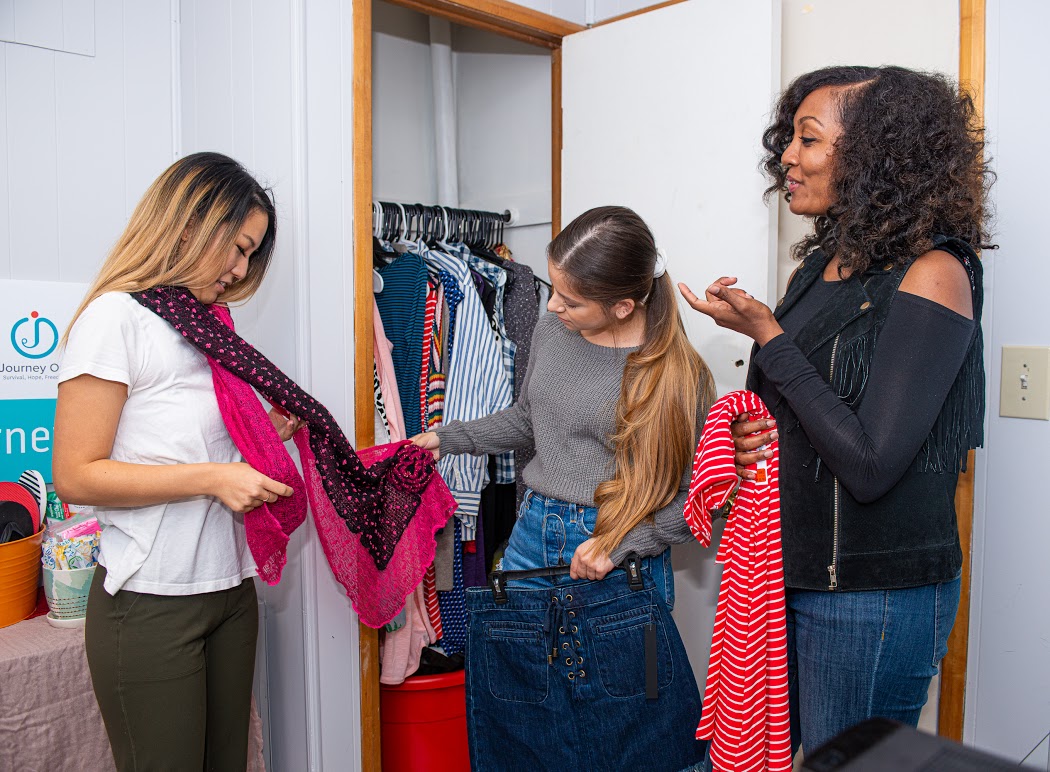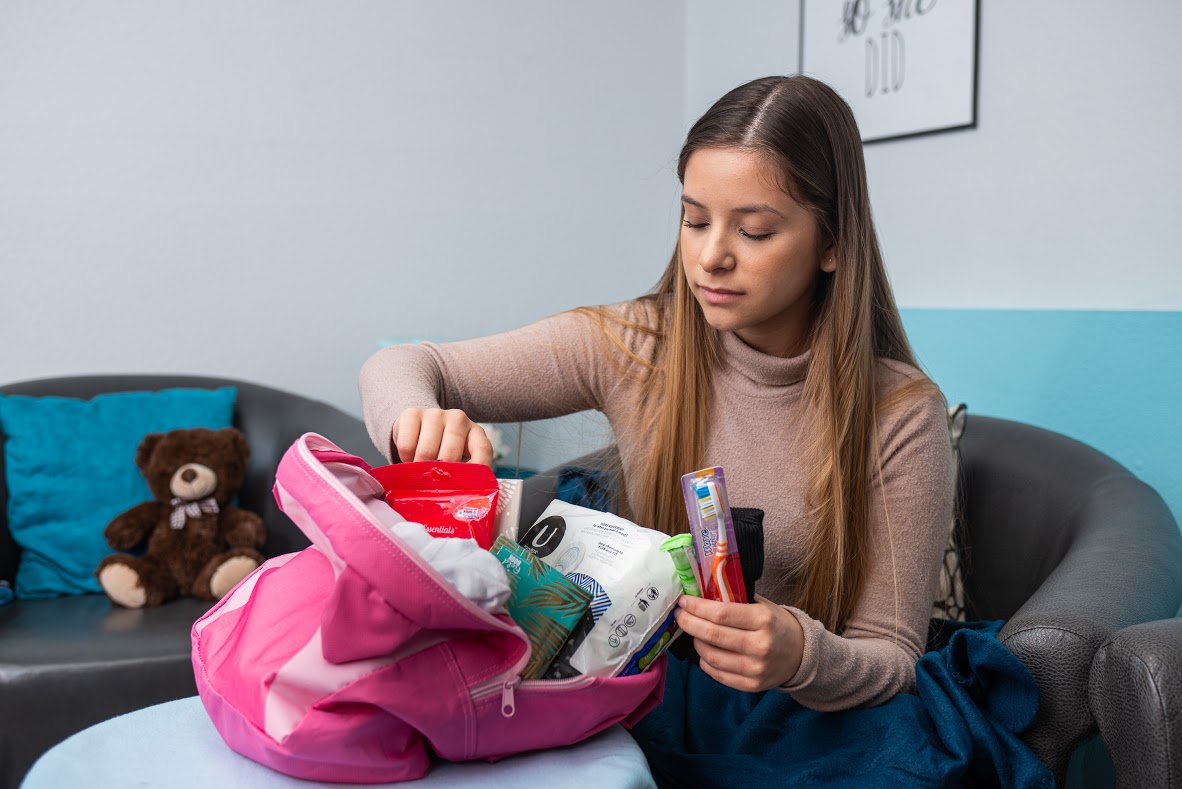Modern-day slavery is alive and well – booming, in fact.
The human trafficking industry continues to grow in the United States and around the globe. After drug trafficking, human trafficking is tied with the illegal arms industry as the second-largest criminal industry in the world today, generating an estimated $150 billion each year globally. Experts believe there are as many as 27-30 million victims of trafficking around the world.
Disgraced convicted sex offender Jeffrey Epstein, who hung himself in his cell at the Metropolitan Correctional Center in New York on August 10, 2019, brought international attention to sex trafficking, which still remains largely hidden from society.
Los Angeles has emerged as a hotspot for human trafficking, where a sex trafficker makes, on average, $49,000 per victim.
Journey Out is an L.A.-based nonprofit leading the fight for the freedom and survival of all those whose lives have been destroyed by sex trafficking or commercial sexual exploitation. And, helping them rebuild their lives.
“There are a number of reasons,” Mary David, Director of Communications at Journey Out explains why L.A. has become such a hub for traffickers. “Geographically, it’s a coastal port and there are many points of entry. There’s also a large tourist hub. Being an international port, it means there are lots of networks of traffickers, being so close to the border. There is also a higher rate of homelessness of women and children.”
She says traffickers find their prey “outside of jails, homeless shelters, and group homes because they represent the most vulnerable – they are looking for people who don’t have anything.”
“We get clients up through their sixties, but the majority of our clients are between 24-36 years old,” she explains. “A lot of them are coming in after a long time of the abuse. Most abuse starts in childhood with 90% of victims being abused as a child. The entry age of prostitution is 12- 15.”

Last year the organization helped 300 people through their extensive programs which include law enforcement crisis response, providing emergency housing, food, and clothing, art therapy clinical counseling legal referrals, job training, Prostitution Diversion Program – court-approved diversion programming as an alternative to incarceration, domestic minor sex trafficking prevention programming, and community/agency education and training.
The organization finds victims of trafficking through street outreach, law enforcement crisis response, referrals and diversion programming.
“We have a crisis emergency response team, where law enforcement calls our designated crisis response case managers in the event of a crisis. We also reach out to those in the Life with packages including care hygiene kits and materials for them if they need help.
“A lot of people start to recognize our people and we build trust. We just want to ensure that they know that we are here to help, provide them with a safe, no-judgement environment.
“A lot of them are on the streets, so it really is about trust.”
So how do people become victims of trafficking?
“A lot of times, they don’t see themselves as victims,” Mary says. “They figure they have had a hard life and just got unlucky. 90% of our clients are actually victims of child sexual abuse.”
Half of the staff at Journey Out are survivors themselves. You can read a selection of survivor stories here.
“We are extremely lucky to have a program and approach that empowers people, ” Mary says. “They are a testament to the success of working through the therapy and being given the time to heal.”
She continues: “It really goes back to being a zero judgment zone. Our clients know that we respect them and their sense of agency. We say at Journey Out that it takes about 6-7 false starts before someone is ready to leave a life of commercial sexual exploitation. Anyone who comes through our doors knows that no matter where they have been or how many times they have been to our office before, they are always welcome. We will not push someone into additional programming, or any programming. It has to be a choice that they want to make. Otherwise, we are just another person making demands of them, and that in and of itself can be triggering. It also limits the power they have and the benefits that come from making a decision when you’re ready. Our clients can feel that when they walk in. I think it’s also the fact that about half of our staff are survivors themselves. Clients know that many of the people walking alongside them at Journey Out are people who have been in their shoes.”

Much like the rest of the world, the organization has felt the wrath of COVID, but they continue on their mission to help survivors.
“COVID absolutely has affected our clients,” Mary explains. “Our clients are really struggling right now. Survivors who were just getting back on their feet and working at the mall or in service industries are doing so at reduced capacities. Many of them, especially while they were in life, did not file taxes for the past two years, so they were unable to take advantage of the stimulus checks that the rest of us received. Those who rely on jobs cleaning houses, especially our immigrant clients, are hit especially hard. Some of them were getting paid on a monthly basis for cleaning homes and had clients cancel halfway through the month without paying them for the weeks they had already worked. Not only do they not have other means to sustain themselves, but they are further burdened by language barriers and fewer relief options because they are not US citizens.”
She adds: “Thankfully, we are still able to see clients in a limited capacity at our drop-in center and group sessions still happen remotely. They need our services now more than ever, so that support is really crucial. We have an increased need for immediate supplies such as groceries and diapers, and we are doing our best to continue getting all of our clients and their families exactly what they need to help them through. Still, victims and survivors have continued to face pressure to work in the streets or hotels and to offer services via webcams. The uncertainty and financial instability presented by COVID, in addition to the mental harm for someone who is still trying to navigate a world outside of the Life, is tremendous.”
Mary says the most rewarding part of her work is seeing the victims “discover what they want to do next in life. Seeing them study for exams and seeing that transformation. You have to remember, that these victims were told when to eat and when to shower – it was never an option to have choices in life. When they have gone through therapy and have come out the other end, ready to start a new life, it just gives others so much hope.”
So what do Kindness and Hope mean to her?
“To me, kindness means treating someone with respect, care, and empathy, regardless of their circumstances and without expectation of anything in return,” she says. “Hope is looking forward to the future with a sense of optimism and excitement about what it could bring.”
To help facilitate hope for sex trafficking victims and support Journey Out’s efforts please consider donating by using this link: https://donate-usa.keela.co/helping-clients-through-covid-19



